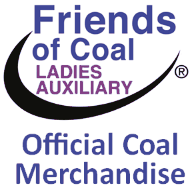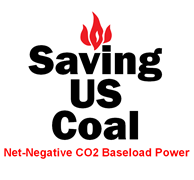
 











|
Signature Sponsor


June 16, 2025 - Both the Trump administration and Wyoming lawmakers appear to be losing enthusiasm for advancing research and seeding commercial-scale carbon capture at existing coal-fired power plants — a key component of Gov. Mark Gordon’s coal-inclusive “decarbonizing” energy strategy. The U.S. Department of Energy in May cancelled some $3.7 billion in federal grants to support “clean energy” demonstration projects across the nation, including $49 million for a “large-scale” carbon capture pilot project at the Dry Fork Station coal-fired power plant north of Gillette. Also in May, the Wyoming Legislature’s Joint Minerals, Business and Economic Development Committee decided to look into repealing the state’s controversial coal carbon capture mandate, House Bill 200, “Reliable and dispatchable low-carbon energy standards,” passed in 2020. Gordon has hailed the mandate, also known as “Low-Carbon Energy Standards,” as an important tool in his “best-of-all-of-the-above” energy strategy, as well as his “Decarbonizing the West” initiative, which touts the importance of keeping coal-burning power plants open by retrofitting them with carbon capture technologies. But the state law doesn’t appear likely to produce a carbon capture retrofit anytime soon, Wyoming lawmakers noted, though ratepayers in the state have already paid millions of dollars to support technical feasibility studies imposed by the mandate.
“It just reminds me of the expression, ‘Look what we’ve done to ourselves,'” said Gillette Republican Rep. Christopher Knapp, who sponsored a bill earlier this year to repeal the mandate. The measure failed. “I have a concern,” Knapp added, “that we’re continuing to implement something that does nothing but increase the rates of our ratepayers, No. 1, and drives up the price of coal-fired power, which then does lead to [shifting from coal to new power source investments] such as nuclear or wind and solar.” Electric utilities Black Hills Energy and Rocky Mountain Power, the only two Wyoming coal plant operators subject to the mandate, have indicated it could cost between $500 million and $1 billion to retrofit just one of several coal units subject to the state law. Wyoming ratepayers would be on the hook to cover those costs, according to the utilities and state officials. The utilities have collected about $5 million from Wyoming ratepayers to comply with the law, according to the Wyoming Office of Consumer Advocate. And that’s just for coal carbon capture feasibility studies, without the promise of an actual retrofit. Of the $5 million, the consumer advocate is asking state regulators to order Rocky Mountain Power to refund $3.7 million to its customers. If not in Wyoming, then where?TDA Research, which saw its $49 million federal grant cancelled last month, has tested its “membrane and solid sorbent” carbon capture technology since 2022 at the Wyoming Integrated Test Center, co-located at Dry Fork Station. The company proposes to tap into the plant’s “flue gas,” or smokestack, to scrub carbon dioxide, potentially capturing about 90% of the gas that would otherwise stream into the atmosphere, according to a TDA description of the project. The hope is to demonstrate the commercial viability of the technology that so far has eluded coal power plant operators.
The Department of Energy’s Office of Clean Energy Demonstrations awarded $49 million to support the project in August, and TDA announced it would begin construction of the facility in 2027. TDA did not respond to WyoFile’s inquiries about the project’s future. The pilot project was perhaps among the most promising for existing coal plants because it would be attached to Dry Fork Station — one of the nation’s newest coal plants designed to potentially incorporate post-combustion carbon capture systems, said University of Wyoming Associate Professor of Economics Rob Godby. “Dry Fork has been identified in different studies as the lowest-cost plant in the country to attempt this technology,” Godby told WyoFile. “If it won’t work here, where will it work?” Regardless of the fate of TDA’s project, several more carbon capture research and commercialization efforts are ongoing at Dry Fork and the Integrated Test Center, said Christine Reed, outreach director for the University of Wyoming’s School of Energy Resources, which oversees the test center. “It is unfortunate that the TDA pilot project was cancelled, but there is still ample opportunity for carbon capture technologies to continue testing at the ITC,” Reed told WyoFile via email. “The [Integrated Test Center] plays an important role in allowing companies to scale up their projects, and there is still potential for others to utilize the facility for testing in the future.”
Gordon said the culmination of public and private research partners at the Wyoming test center have successfully brought down the cost of the technology’s commercial-scale implementation. He noted that Kawasaki Heavy Industries successfully tested another coal carbon capture technology at the Integrated Test Center, which is now being deployed at a coal plant in Japan. “Both Taiwan and Japan, while they both think they’re going to have about 20% of their portfolio made up of coal, they’re still committed to being able to get carbon credits and being carbon neutral by 2050,” Gordon told WyoFile. “The reason why Japan, and the reason why Taiwan are so interested in coming to Wyoming is because of our decarbonizing efforts. They see that as a way they can meet their climate goals. We’re just trying to make ourselves more relevant in the marketplace.” Shifting political attitudesWhile the Trump administration and GOP-supermajority Wyoming Legislature desperately want to “save coal,” their preferred strategy appears to diverge from a market-based approach championed by. Gordon. Regardless of federal policies that seesaw between presidential administrations, markets demand energy that emits less greenhouse gas, Gordon has said. Scrubbing carbon from coal, according to the governor, is vital to keeping it in the nation’s energy mix — whether his constituents embrace the need to address human-caused climate change or not. “We were trying to extend the life of coal, and we may be shortening it because we put this [mandate] out there and we’re forcing our utilities into a corner.” “It is important that we acknowledge that, if the concern is about CO2 emissions in our atmosphere, then our focus must be on CO2 more broadly, not just curtailing the use of fossil fuels,” Gordon wrote in the introduction of his Western Governors’ Association Decarbonizing the West report last year. Though Gordon has cheered the Trump administration’s promise to “reinvigorate” U.S. coal and its strategy to slash federal regulations, it’s still a question whether the White House will embrace his message that commercializing coal carbon capture is a vital tool in making coal more “marketable” to states and customers with low-carbon energy standards. The Department of Energy cited economic savings “in the best interest of the American people” when it announced cancelling the $3.7 billion carbon capture effort established under the Biden administration. The two dozen projects, including the one at Dry Fork, “did not meet the economic, national security or energy security standards necessary to sustain DOE’s investment,” the agency stated. Yet, Wyoming’s years of leadership in advancing coal carbon capture technology have helped bring down the cost of commercializing it, Gordon said.
“Wyoming wanted to provide the laboratory to be able to test these theories and, at the same time, to make sure that our [coal] production stays here,” Gordon told WyoFile. Though the 2020 Wyoming Legislature established the HB 200 coal carbon capture mandate, several lawmakers — particularly those in the Freedom Caucus — have been building a case to repeal it in recent years. In addition to Knapp’s failed House Bill 209, “Carbon capture mandate-repeal,” Torrington Sen. Cheri Steinmetz also introduced a measure earlier this year. Senate File 92, “Make carbon dioxide great again-no net zero,” would not only have repealed the mandate, but it would have done so with the declaration that carbon dioxide emissions from coal are beneficial to the environment. “We’re almost back to 15 years ago when the argument [was] that carbon capture is a waste of money, especially if you don’t believe climate change is occurring,” UW’s Godby said. “It took so long for the state to get over that hurdle to say, ‘Even though I don’t think climate change is necessarily being caused by human action, the markets do, and that’s why we should invest in this and try to preserve our coal assets.'” The push to repeal Wyoming’s coal carbon capture mandate, Gordon said, mostly comes from the Freedom Caucus. “They’re trying to set it up as an us-against-them kind of effort,” Gordon said. “I don’t know if they’re purposely mischaracterizing or they’re trying to stir up something.” But the point of the mandate, Gordon added, is to tell coal plant operators in Wyoming, “before you go and unilaterally shut down a coal plant, you’ve got to look at this, because that technology is coming along.” Though the premise of advancing coal carbon capture has always been more of a long-term preservation strategy for the industry, some Wyoming lawmakers find it difficult to continue to justify passing the costs on to ratepayers and their constituents — particularly since some coal units in Wyoming have been converted to natural gas rather than being slated for a carbon capture retrofit. “Maybe, because this is an additional expense on our coal-fired power plants, this is having unintended consequences [of] driving our power plants to be converted from coal to natural gas,” Green River Republican Rep. Scott Heiner said, noting recent coal-to-natural gas conversions. “We were trying to extend the life of coal, and we may be shortening it because we put this [mandate] out there and we’re forcing our utilities into a corner.” The Joint Minerals, Business and Economic Development Committee will discuss draft legislation to repeal the mandate when it meets July 29-30 in Casper. |
 










|



